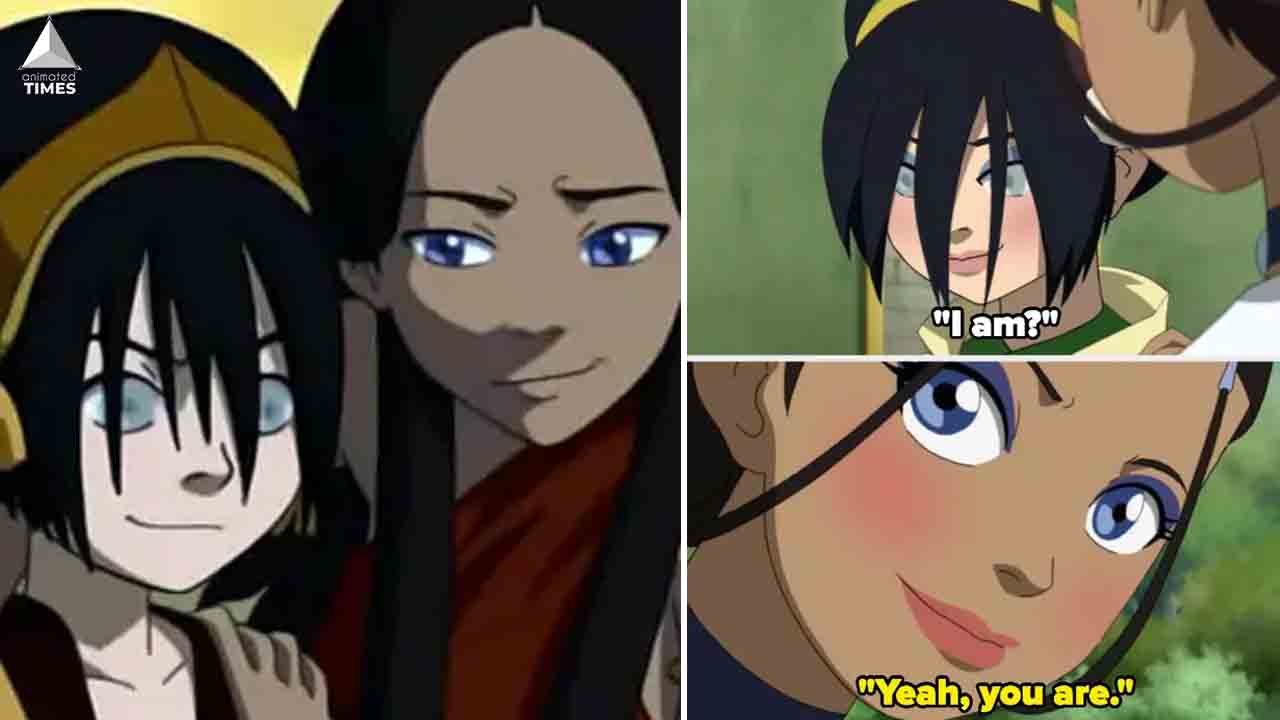Avatar The Last Airbender: How It’s Feminist And Progressive
TV shows or movies rarely represent and address topics like feminism, equality, or discrimination. Whereas, they are the easiest medium to promote something on a wider scale. Yet, they do not use the medium to its fullest capacity. But, we do have some TV shows that directly address these topics and promote concepts such as feminism and equality. For a long time, women have suffered and fought for representation, equal rights and have had the desire to be treated well. Hence, they deserve recognition. Some makers have managed to do that well. One such example is Avatar The Last Airbender. This show has promoted feminism well. It’s progressive and serves the interest of the general public. How do we feel so? Check it out! Also, you can comment on what you feel about the show being progressive and feminist. See you there!
1. Mentioning Sexism Directly To The Kids
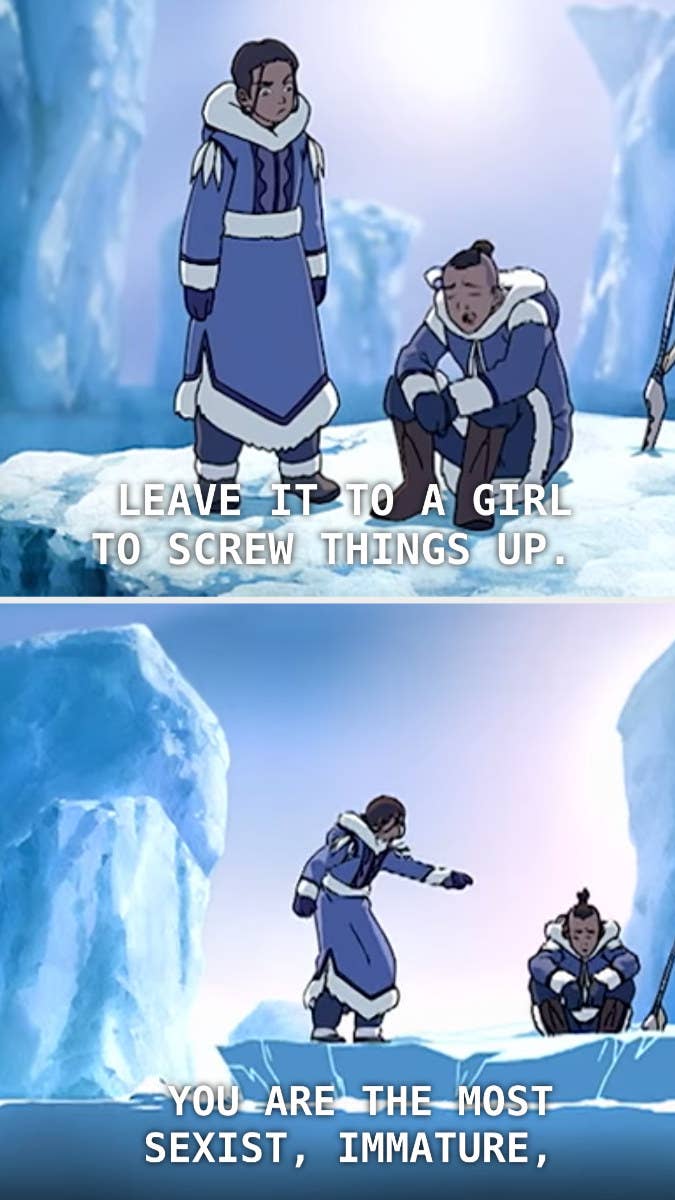
Learning that takes place in childhood is the best since it’s the former years of the child. Katara calling out the pilot as a sexist directly in his face is a win-win situation. Addressing such a topic boldly takes a lot of guts. Children learning not to do this at this age is perfect!
2. Giving Sokka An Entire Episode To Realize That He’s A Misogynist
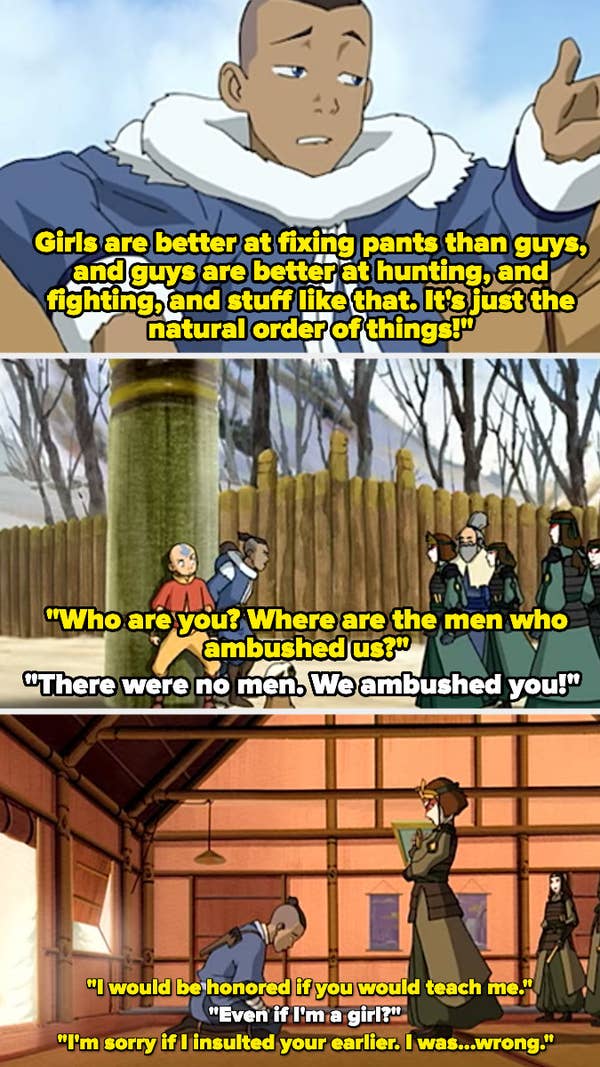
The Last Airbender devoted an entire episode to Sokka realizing that he’s a misogynist. Therefore, swallowing his pride and asking a woman to be his master. That was quick Sokka! Ultimately, he realizes that women are no less than men!
3. Balancing Out Feminine Traits And Warriorship
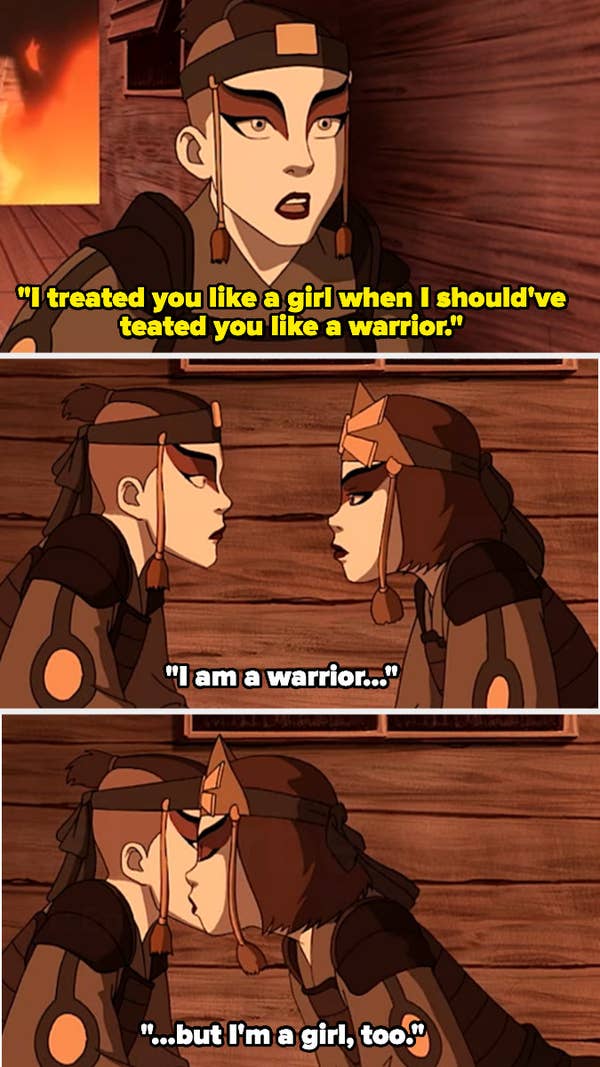
In the same episode when Sokka realizes that he’s wrong in the way he treats women, Suki beautifully portrays how women can be both- feminine and powerful. And, ah! That sweet peck on the cheeks. What a style!
4. The Show Throws The Outdated Traditions Right In The Bin!
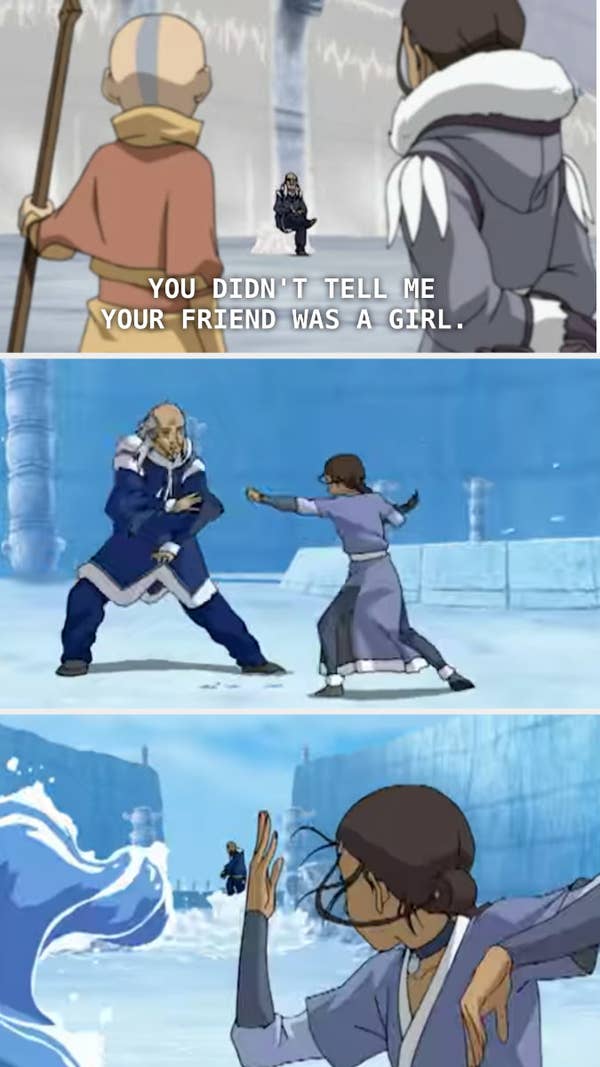
When Aang, Sokka, and Katara reach the North Pole, water bending master Pakku denied teaching Katara the techniques. Why? That’s because it was against the ‘traditions’. What do you think would have happened next? Yes, Katara fought back. She challenged Pakku in a duel and proves herself worthy of it.
5. Katara’s Grandmother Proving That Women Can Own Their Lives
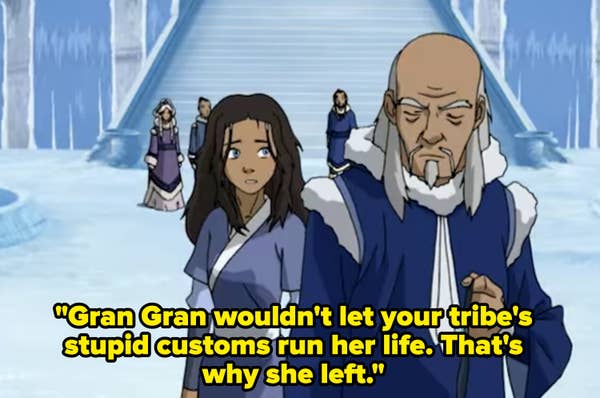
Kanna aka Gran-Gran, Katara’s grandmother was engaged to Pakku. However, things never went ahead because she ran away. She never loved Pakku and wanted to live a life on her terms. This shows how women can own their lives and not others controlling them.
6. Portraying Women As Essential And Not Merely As Sidekicks
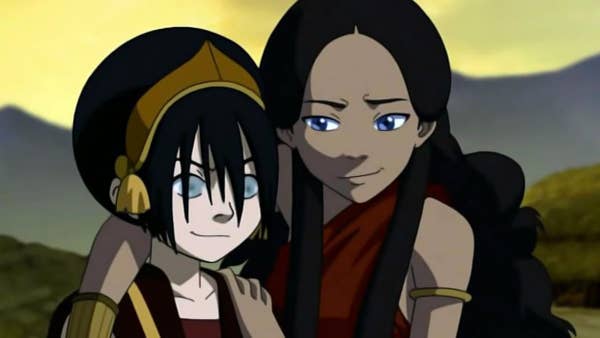
Katara and Toph are the masters of their skills and help Aang in being the best version of himself. Both of them are portrayed in the best possible way and not just as sidekicks who are forgotten with time.
7. Women Uplifting Other Women
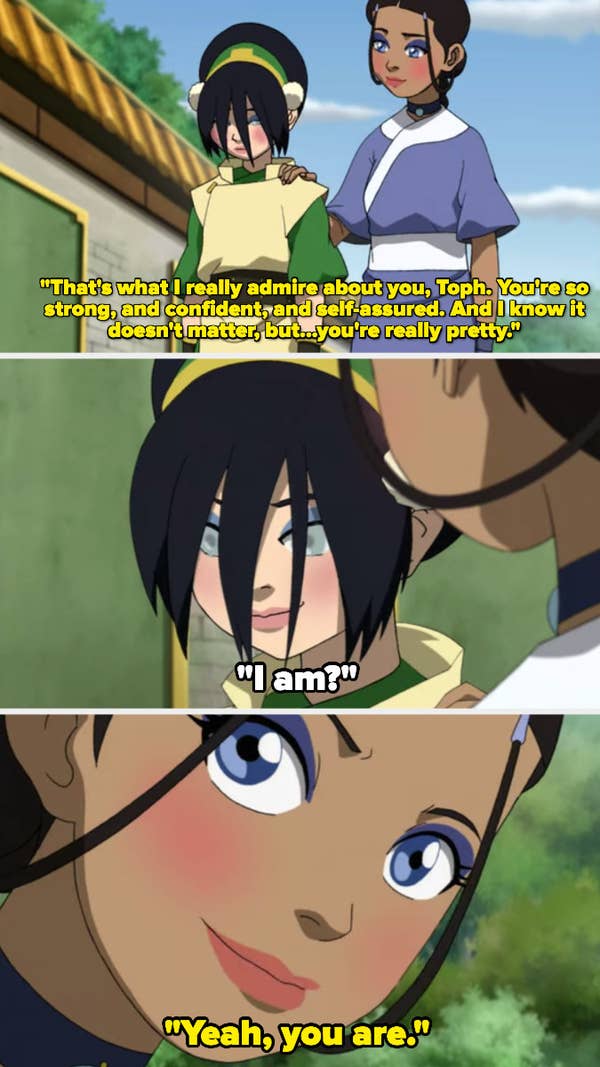
It is so important for women to start uplifting, supporting, and appreciating other women instead of being jealous of them. That’s what they’ve shown via Katara and Toph’s relationship. Even though they have a strained relationship, they do support each other. For instance, Katara expresses how much she appreciates Toph, defended her against some village bullies. This just shows how positive the whole idea of women supporting women can be!

